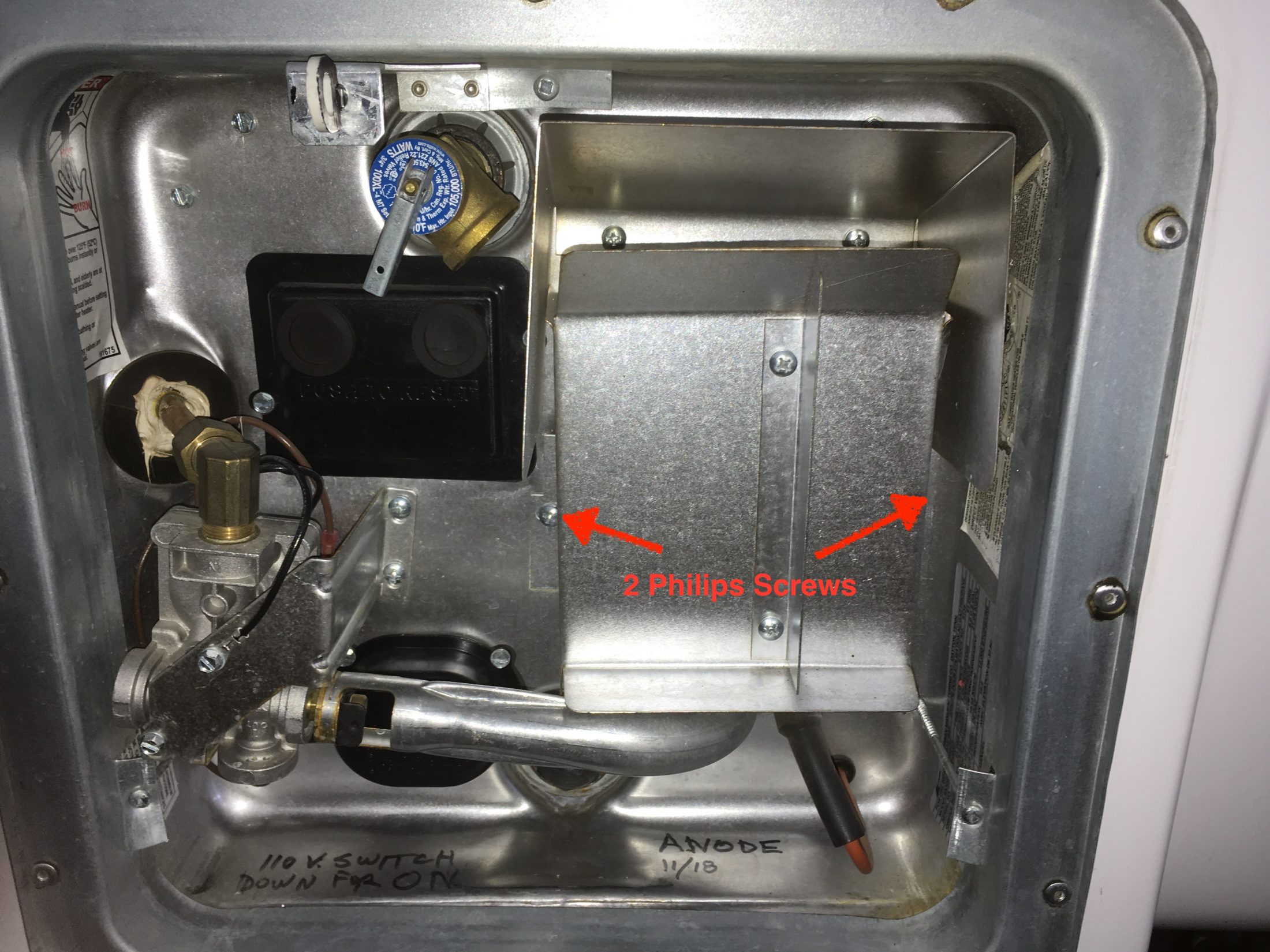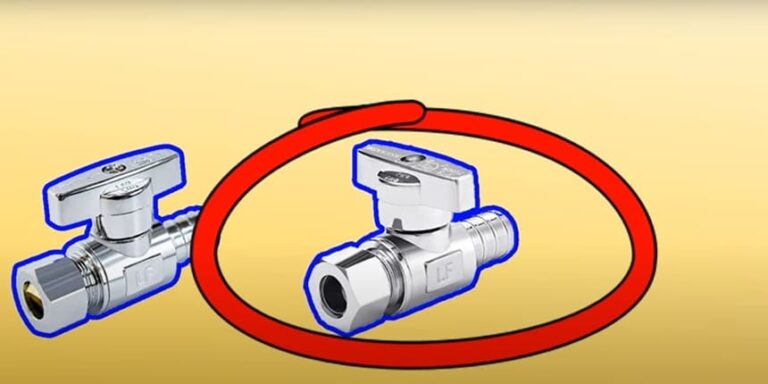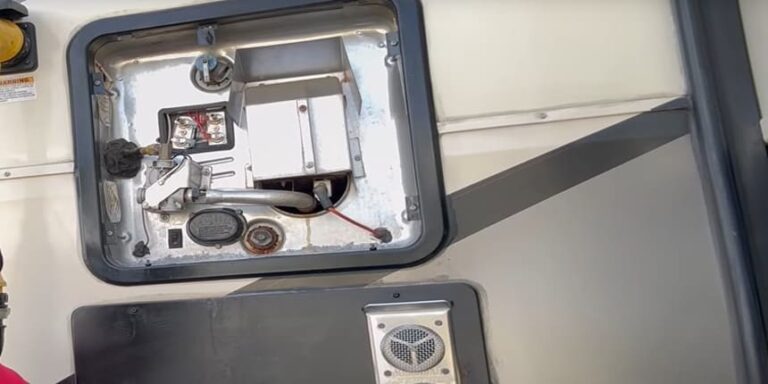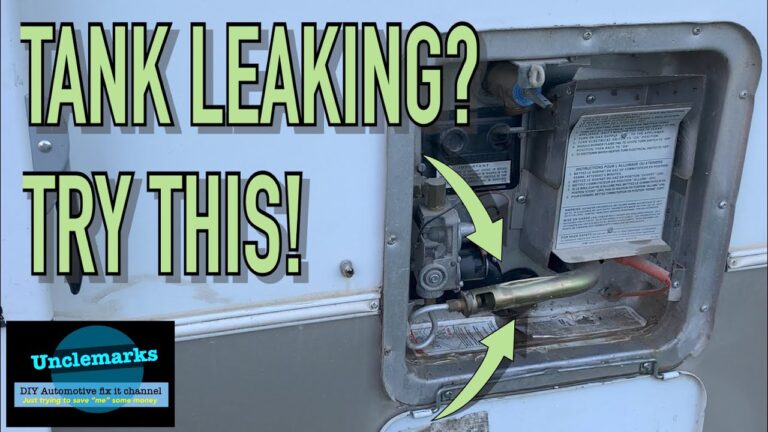Imagine you’re all set for a relaxing weekend getaway in your RV, only to find that your Suburban RV water heater isn’t working on gas. Frustrating, isn’t it?
You were probably looking forward to a warm shower after a long day of exploring, and now you’re left with cold water. But don’t worry; you’re not alone in facing this challenge. Many RV enthusiasts encounter this issue, and there are ways to troubleshoot and fix it.
We’ll guide you through simple steps to diagnose and resolve the problem. Stick with us, and you’ll soon be back to enjoying all the comforts of your RV.
Common Issues With Rv Water Heaters
RV adventures promise freedom, but a cold shower can quickly dampen that spirit. Many RV owners face challenges with their water heaters, especially when they fail to work on gas.
Understanding common issues can save you time and frustration. Let’s dive into some specific problems you might encounter.
1. Ignition Problems
Imagine gearing up for a relaxing night only to find your water heater won’t ignite. This is a common hurdle. It often stems from a faulty igniter or a dirty burner assembly.
A simple cleaning or replacement might be the fix you need. If you’ve ever had to fiddle with the igniter, you know it requires patience and precision.
2. Gas Supply Obstructions
Another frequent issue is gas supply obstruction. Blockages in the gas line can prevent your heater from firing up.
Check for any debris or dirt clogging the gas lines. A clear path ensures a steady flow of gas, which is crucial for operation. Have you checked your gas valves recently?
3. Thermostat Malfunctions
The thermostat controls the water temperature. If it’s malfunctioning, your water might be too cold or scalding hot. Sometimes, recalibrating the thermostat can solve the issue.
Consider if your thermostat settings seem off or are inconsistent. Regular checks can prevent unexpected surprises.
Encountering these issues can be frustrating, but addressing them head-on is empowering. What steps will you take to ensure your RV water heater runs smoothly on gas?
Safety Precautions To Check The Error
Ensuring safety when dealing with your RV water heater is crucial. Gas-powered systems can pose risks if not handled correctly. Following safety precautions protects you and your RV.
#1: Checking For Gas Leaks
Gas leaks can be dangerous. Start by inspecting the connections for damage. A smell of gas indicates a possible leak.
Use a soap and water solution to find leaks. Apply the solution on connections. Bubbles mean there is a leak. Turn off the gas immediately if a leak is found.
#2: Proper Ventilation
Proper ventilation ensures safe operation of your water heater. Check the vents for blockages. Clear any debris or obstructions.
Good airflow prevents gas buildup. Open windows and doors when working on the heater. This allows fresh air circulation. Avoid using the heater in enclosed spaces.
Troubleshooting Steps For Suburban RV Water Heater Not Working
Experiencing issues with a Suburban RV water heater on gas? Start by checking the gas supply and connections. Ensure the pilot light is lit and the thermostat settings are correct.
When your Suburban RV water heater isn’t working on gas, it can be quite frustrating. The good news is, there are straightforward troubleshooting steps you can take to identify and resolve the issue. By following these steps, you can avoid costly repairs and get back to enjoying your RV adventures without worry.
Step-1: Inspecting The Gas Line
First, check the gas supply. Ensure the propane tank is full and the valve is open. A closed valve can easily be overlooked. Next, inspect the gas line for any visible cracks or damage.
A damaged line can disrupt the gas flow, preventing the heater from working. Also, ensure there are no obstructions or blockages in the line. Dirt or debris can cause issues with gas delivery.
Step-2: Testing The Ignition System
The ignition system is crucial for lighting the heater. Start by listening for the clicking sound when you turn on the heater. No sound could indicate a problem with the ignition module.
Check the spark electrode for dirt or wear. Clean it carefully, as grime can prevent it from igniting the gas. Do you see a spark? If not, the ignition system may need replacement.
Step-3: Examining The Thermostat
The thermostat controls the water temperature. Begin by setting it to a higher temperature to see if it kicks the heater into action.
Check the wiring connections to the thermostat. Loose or damaged wires can affect its functionality. Finally, test the thermostat with a multimeter. Ensure it is sending signals correctly to the heater.
What do you do if these steps don’t solve your problem?
Consider calling a professional for further diagnosis. It’s better to be safe and get expert help.

Credit: olivertraveltrailers.com
Tools Needed For Quick Fixes
Experiencing issues with your Suburban RV water heater not working on gas can be frustrating. A quick fix often requires specific tools. Having the right tools at hand can save time and effort. This section will guide you through the essential tools needed for quick fixes.
Basic Toolkit
A basic toolkit is essential for any RV owner.
It should include a screwdriver set, pliers, and a wrench. These tools help tighten or loosen screws and bolts.
Ensure the screwdriver set includes various sizes. This allows you to handle different screw types.
Pliers are great for gripping and bending wires. A wrench is useful for adjusting nuts and bolts.
Multimeter Usage
A multimeter is crucial for checking electrical components. It measures voltage, current, and resistance.
Using a multimeter can identify faulty wiring or connections. Ensure the multimeter is set correctly.
Follow instructions for safe usage. This tool helps diagnose electrical issues efficiently. Understanding multimeter readings is key to solving problems.
Diy Repair Tips
Is your Suburban RV water heater not working on gas? Don’t worry. You can fix it yourself with a few simple steps. This guide provides easy DIY repair tips. Save money and get your water heater back on track.
Cleaning Burner Assembly
A dirty burner assembly can cause gas flow issues. First, turn off the gas supply. Remove the burner assembly from the water heater.
Check for dirt or debris blocking the gas flow. Use a wire brush to scrub the burner. Make sure all ports are clear and clean. Reinstall the burner assembly. Check if the heater ignites properly.
Replacing Faulty Components
Faulty components can disrupt the heater’s function. Identify damaged parts like the thermocouple or gas valve. A faulty thermocouple can prevent the pilot light from staying lit.
Disconnect the thermocouple and replace it with a new one. If the gas valve is the issue, remove it carefully. Install a new gas valve following the manufacturer’s instructions. Test the heater to ensure it works on gas.
When To Seek Professional Help
A Suburban RV water heater not working on gas may need professional help. Strange noises, persistent ignition problems, or irregular heating indicate deeper issues. Skilled technicians can diagnose and fix these problems efficiently.
When your Suburban RV water heater fails on gas, it’s frustrating. You need hot water for comfort and convenience. Sometimes, DIY fixes aren’t enough.
Knowing when to call a professional can save time and stress. Experts can handle complex issues efficiently. Let’s explore when to seek professional help.
Identifying Complex Issues
Some problems are tricky and need expert attention. Gas-related issues can be dangerous. Professionals understand the intricacies of gas systems.
If you smell gas or hear strange noises, it’s time to call an expert. They have tools to diagnose hidden faults. Water heaters have many parts. Thermocouples, burners, and valves need precise handling.
Experts know how to manage these components safely. If your heater leaks or fails repeatedly, seek professional help.
Evaluating Repair Costs
Repair costs can vary. Professionals provide detailed estimates. They help you understand the cost versus benefits. DIY fixes might seem cheaper.
But professionals ensure long-term solutions. They prevent future issues, saving money in the long run.
Complex repairs might cost more initially. But avoiding repeated problems saves more. Professional repairs often include warranties. This ensures peace of mind. Compare costs and benefits wisely. Ensure your investment is worthwhile.
Preventive Maintenance
Preventive maintenance is your best friend when it comes to keeping your Suburban RV water heater running smoothly on gas. A proactive approach can save you from unexpected cold showers and costly repairs.
Let’s dive into some practical steps you can take to ensure your heater remains in tip-top shape.
Regular System Checks
Regularly checking your RV’s water heater system can make a world of difference. Get into the habit of inspecting it at least once a month. Look out for any signs of wear and tear, like rusty components or loose connections.
Simple checks can help catch minor issues before they become major headaches. Remember to test the gas valve to ensure it’s functioning correctly. Is there anything unusual about the flame? A weak or flickering flame can signal trouble.
Personal story: Once, while camping in the mountains, my water heater gave out unexpectedly. A quick check revealed a loose connection that could have been spotted earlier. That experience taught me the importance of regular inspections.
Scheduled Cleaning
Cleaning isn’t just for appearances; it’s crucial for performance. Schedule a thorough cleaning every few months. A clean heater can operate more efficiently, conserving gas and ensuring consistent heat.
Start by checking for dust and debris around the burner area. These can obstruct the flame and affect heating. Use a soft brush or compressed air to gently clean these components.
Have you ever noticed a sulfur-like smell from your heater? This can indicate bacteria build-up. Draining and flushing the tank can help prevent this. It’s a simple task that can save you from smelly showers and potential damage.
By taking the time to check and clean your system regularly, you’re not only extending its lifespan but also enhancing your RV experience. Why wait for a problem to occur when you can prevent it? Your next adventure could depend on it!

Credit: m.youtube.com
Frequently Asked Questions
Q: Why Is My Rv Water Heater Not Working On Gas?
A: Your RV water heater might not work on gas due to several reasons. It could be a faulty thermostat, a clogged burner or an empty propane tank.
Check each component for issues. Regular maintenance can prevent many common problems with RV water heaters.
Q: How Do I Troubleshoot My Rv Water Heater?
A: To troubleshoot your RV water heater, check the propane supply first. Inspect the burner for clogs or debris. Verify if the thermostat is functioning correctly.
Consult the manual for detailed troubleshooting steps. Routine checks can help maintain heater efficiency.
Q: Can I Fix My Rv Water Heater Myself?
A: Yes, you can fix minor issues with your RV water heater yourself. Simple tasks like cleaning the burner or replacing the thermostat are doable.
For complex repairs, consult a professional. Always prioritize safety when dealing with gas appliances.
Q: What Maintenance Does An Rv Water Heater Need?
A: Regular maintenance includes checking gas supply, cleaning the burner, and inspecting the thermostat. Flush the tank to remove sediment buildup.
Regularly inspect connections and seals for leaks. Proper maintenance ensures efficient operation and extends the heater’s lifespan.
Final Words
Fixing a Suburban RV water heater is simpler with the right steps. Identify the issue first. Check gas supply and connections. Clean the burner and orifice regularly. Replace faulty parts promptly. Consult a professional if needed. Regular maintenance keeps your heater working efficiently.
Avoid problems on your travels. Enjoy a hot shower on the road. Stay safe and comfortable in your RV. Happy camping!



